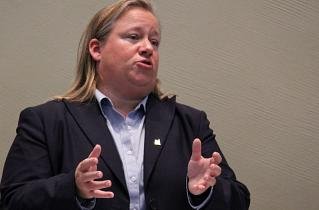Airbnb Says it Should Pay the Same in tax, not More, than Hotels
Airbnb is crying foul at the possibility of being taxed by the city at a higher rate than the hotel industry.
City staff have been asked to look at the impact of taxing short-term rentals at up to 10 per cent, compared to a suggested 4 per cent for hotels.
That would hurt Airbnb hosts and guests. It would also discourage competition, says a Mar. 2 letter to Tracey Cook, executive director of Toronto Municipal Licensing and Standards.
A 4-per-cent tax would have cost Airbnb guests $3.9 million last year, wrote Alex Dagg, public policy manager with Airbnb Canada.
“Imposing a higher tax rate will also hurt everyday Torontonians who are sharing their residential homes a few nights a month to earn a modest, supplemental income,†she said, in the letter leaked to the Toronto Star.
Dagg reiterates her company’s willingness to contribute to the tax base and its support of occupancy taxes in 200 jurisdictions.
But it urges city staff to “apply a fair and consistent policy that applies the same hotel and tax rate on both hotels and short-term accommodations.â€
The city announced Thursday that it will hold public consultations on regulating short-term rentals. Taxes, noise and safety are up for discussion, as well as the impact of short-term rentals on the availability and affordability of Toronto’s housing.
Council has endorsed the idea of a lodging tax that would apply to short-term rentals, but it has asked the city manager to report back on a suggested rate, of up to 10 per cent. The tax would require a change in legislation from the province.
Final recommendations are to be presented to the executive committee in June.
Councillor Joe Cressy is among those who have suggested that the short-term rental tax could help fund affordable housing in Toronto.
A union-led coalition that has been pushing for the regulation of Airbnb, agrees. Fairbnb spokesperson Thorben Wieditz says it’s fair to tax short-term rental companies higher than hotels because the commercialization of “home-sharing†is diminishing the stock of long-term housing options for Toronto residents.
Fairbnb says that 52 per cent of Airbnb revenue is generated by only 16 per cent of hosts.
“The whole business model revolves around turning residential properties into accommodation for tourists. To tax them accordingly is a positive thing. To move this money towards funding or enforcement would also make sense,†said Wieditz.
Airbnb has said it helped attract 423,000 overnight stays and $417 million a year to Toronto last year.
“Implementing reasonable regulations that support new technologies has the potential to continue to draw education and dynamic young people to the city,†said Dagg in her letter.
She has told the Toronto Star that the average Airbnb host earns $5,000 a year.
Comments
There are 0 comments on this post





